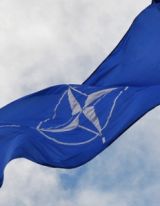The year 2014 will be pivotal for NATO as it draws down from the mission in Afghanistan, prepares for the 2014 summit in Wales, and grapples with new political challenges to the transatlantic community, from the crisis in Ukraine to the ongoing Syrian civil war. While NATO remains a manifestation of the values and commitments espoused by the transatlantic community since its inception in 1949, it must overcome significant internal obstacles to remain a relevant and effective institution, including a dearth of political and financial support from its members and dwindling capabilities.
On February 3, the Atlantic Council and the Norwegian Institute for Defence Studies (IFS) convened top subject-matter experts in Oslo, Norway, for a policy workshop to determine how NATO can best shape its 2014 Summit agenda given NATO’s internal challenges and the current state of transatlantic relations. Participants discussed NATO’s role in Europe’s tumultuous neighborhood, from the Middle East and North Africa to Ukraine, ways for NATO to bolster its capabilities in an era of declining defense budgets, and how NATO can transform to operate in a globalized security environment through the partnership framework.
This event is part of the Atlantic Council and IFS’s project on NATO in an Era of Global Competition, an 18-month effort undertaken to address the role of NATO and the broader transatlantic community in the face of emerging security challenges, global power shifts, and new disruptive technologies.
This policy workshop served as the foundation for the project’s third public conference, The Future of NATO and the Transatlantic Relationship, which will take place on March 19 in Oslo, Norway.
